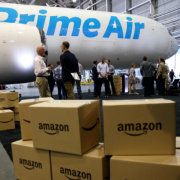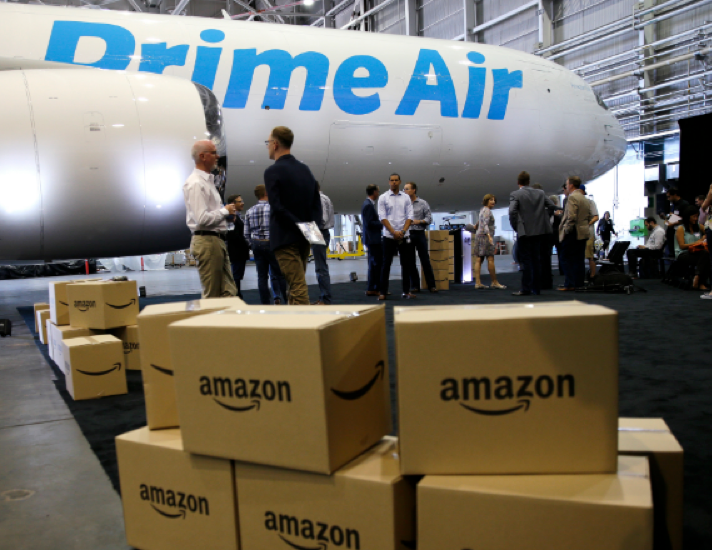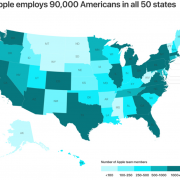Micron Technology Bombs Again
If there was ever a canary in the coal mine, we got one with chipmaker Micron (MU) delivering weak earnings results missing on the top line but squeaking through a one-cent beat on the bottom line.
Love them or hate them, chip companies are susceptible to the boom-bust cycle that is a hallmark of the chip industry.
The beginning of the bust stage of the cycle is upon us with management detailing an “inventory adjustment” that put a damper on revenue.
Micron followed that up by reducing capex for next year and it will take 2-3 quarters to work off this bloated inventory channel.
The perpetrator to the inventory backlog is the smartphone industry.
President and CEO of Micron Sanjay Mehrotra particularly noted “high-end smartphones” as the malefactor tugging down the demand.
This is another damming testament to the prospects of Apple’s (AAPL) suppliers Quorvo (QRVO), Skyworks Solutions (SWKS), NXP Semiconductors (NXPI), Cirrus Logic (CRUS), and Lumentum Holdings (LITE) who can’t catch a break.
The last six months have fired a barrage of poison-tipped arrows at their core business and these stocks are squarely in the no-fly zone until Apple and the trade war can conjure up some good news.
To say these shares are oversold is an understatement, but we are in an extreme trading environment with volatility shooting up the wazoo.
Further reducing the glimmer, Chinese tariffs took up a worrying amount of the conference call dialogue. Investors found out that tariffs pinged half a percent of gross margins.
I have been outright bearish the chip industry from the middle part of the year and Micron is heavily reliant on China for about half of its revenues which is a death sentence in December 2018.
As the China risks have spiked after each head fake détente, so have the execution risks to chip companies with an overly reliant manufacturing process in China.
Not only has the execution risk ratcheted up, but the regulatory risk through costly tariffs is now eroding Micron’s margins.
If you thought that was a downer, then FedEx (FDX) made sure the nail was in the coffin by its ghastly earnings report.
The stock sold off hard confirming fears that global growth is decelerating.
Management did not mince their words about the state of the world and investors usually listen because FedEx is a reliable yardstick of the bigger global economy.
CEO of FedEx Fred Smith offered an olive branch painting a picture of a “solid” US economy, but the conundrum is that the US economy and any other country don't exist in a vacuum and that has been highly evident in Britain who is engaging in economic suicide by disengaging from the globalized world.
Smith cited Europe as a stumbling block and blamed the bulk of weak guidance on “bad political choices”, a thinly veiled dig at the poor level of governance carried out around the world lately.
I might chime in that it is quite strange when political parties and sovereign nations adopt the game of chicken as the leading political strategy applying it to everything and anything.
The side effects to business have been startling with management unable to assuage investor sentiment and business plans shredded apart because of impulsive policy moves.
Politicians aren’t grasping fully that stock market moves are inherently tied to the news cycle and the overwhelming volume of bad news that shouldn’t be as bad as it should be, has a multiplier effect on the stock market algos that go haywire.
It truly is the world of the algos and humans are living in their world and not the other way around.
The most important takeaway from FedEx is what they didn’t say.
Early development of the de-facto Amazon Airlines has already cost FedEx up to 3% of total volume growth.
And this is just the beginning.
Amazon is still feeling around for the rocks at the bottom while it tries to cross the river.
Once it masters logistics, expect a radical swivel towards the integration of their own airline into the bulk of Amazon.com’s package deliveries.
And when FedEx’s management claims that the market has gotten it wrong about the Amazon threat, that means the market is completely correct.
The market is always right.
Amazon’s master plan is to vertically integrate every last process down to the last mile, the doorbell, and now the microwave as Amazon has rolled out a myriad of smart home products.
FedEx management has to be blind to understand this won’t damage future sales.
It is materially false if FedEx thinks Amazon is not competing with them, and the sad part of this is there is not much FedEx can do about it.
The shipping giant cut its 2019 earnings forecast between $15.50 and $16.60 per share — from $17.20 to $17.80 a share.
FedEx’s goal of eclipsing $1.5 billion in operating income by fiscal 2020 has been shelved disappointing investors. FedEx cratered 12% on a day that saw the Fed do its best body slam imitation on the market.
The first phase of the logistics swivel is taking delivery of 40 planes and constructing a hub that will be able to operate 100 planes, then it will do as Amazon does with everything – scale it to the hills.
FedEx and UPS have a few years to figure out how to counteract this existential crisis and not decades.
Technology moves that fast now in this interconnected world.
Domestic volume comprises 17% of revenues at UPS and 19% at FedEx, management won’t be able to hide this problem under the carpet as the drag becomes highly visible like a sore thumb.
Analysts expect Amazon Air to offer more than slim savings to its business model saving between $2 to $4 per package next year.
The annual savings add up from $1 billion to $2 billion or 3% to 6% of its global shipping costs.
It is spot-on to admit that over the last few years, the explosion of packages during the holiday shopping season has put higher levels of stress on the U.S. Postal Service, UPS (UPS), and FedEx.
Even though overloaded with business, all three carriers have posted record levels of on-time deliveries and they appear to be handling the surge in volume.
But there will come a moment in time when an inflection point will give Amazon the keys to the car.
They will suddenly stop offering their e-commerce packages to these three carriers and business will drop off a cliff for them.
That is the future these three are confronted with and there is nothing they can do unless they build their own Amazon.com which is a pie in the sky dream at this point.
Amazon is out to prove they can execute the logistic part of their business cheaper and faster than anyone else because of the superior management and mountain of data they can act on.
I believe it will happen.
Part of stretching themselves with a new army of minions in Washington D.C., New York, and Nashville is partly about fulfilling the job of comprehensively and vertically integrating their e-commerce platform.
It will take a horde of workers to make this happen.
If the prophecy from FedEx management comes true and the global economy indeed softens next year, the stock will bear the brunt of the downside momentum and UPS too.
Stay away from the trio of deliverers. There are healthier fishes in the sea.
And as for the chip sector and Apple, wait on the sidelines for some good news.







